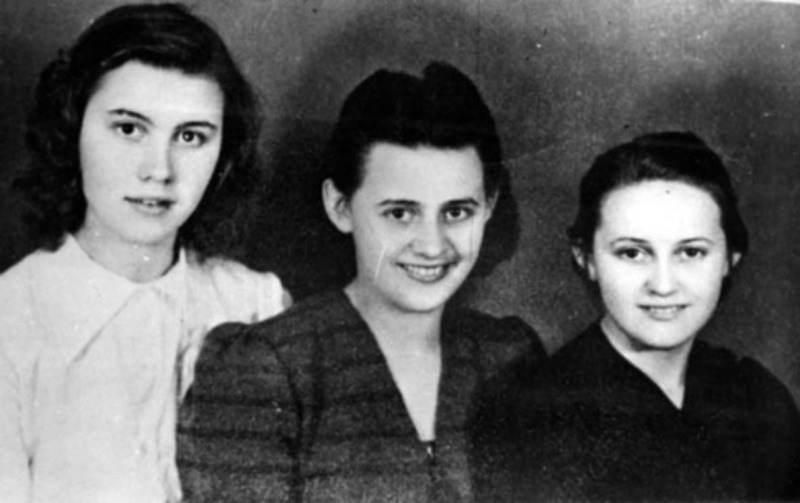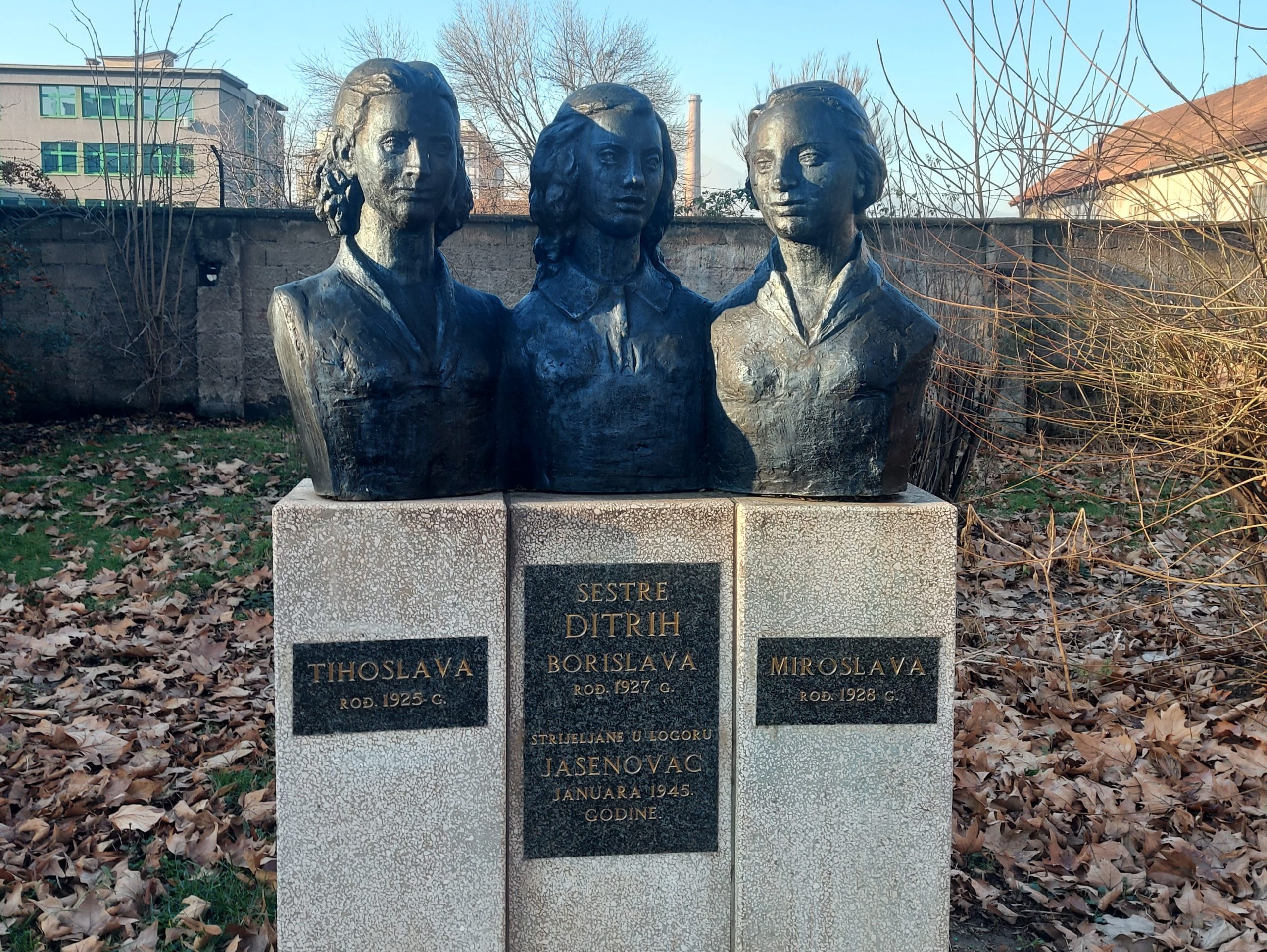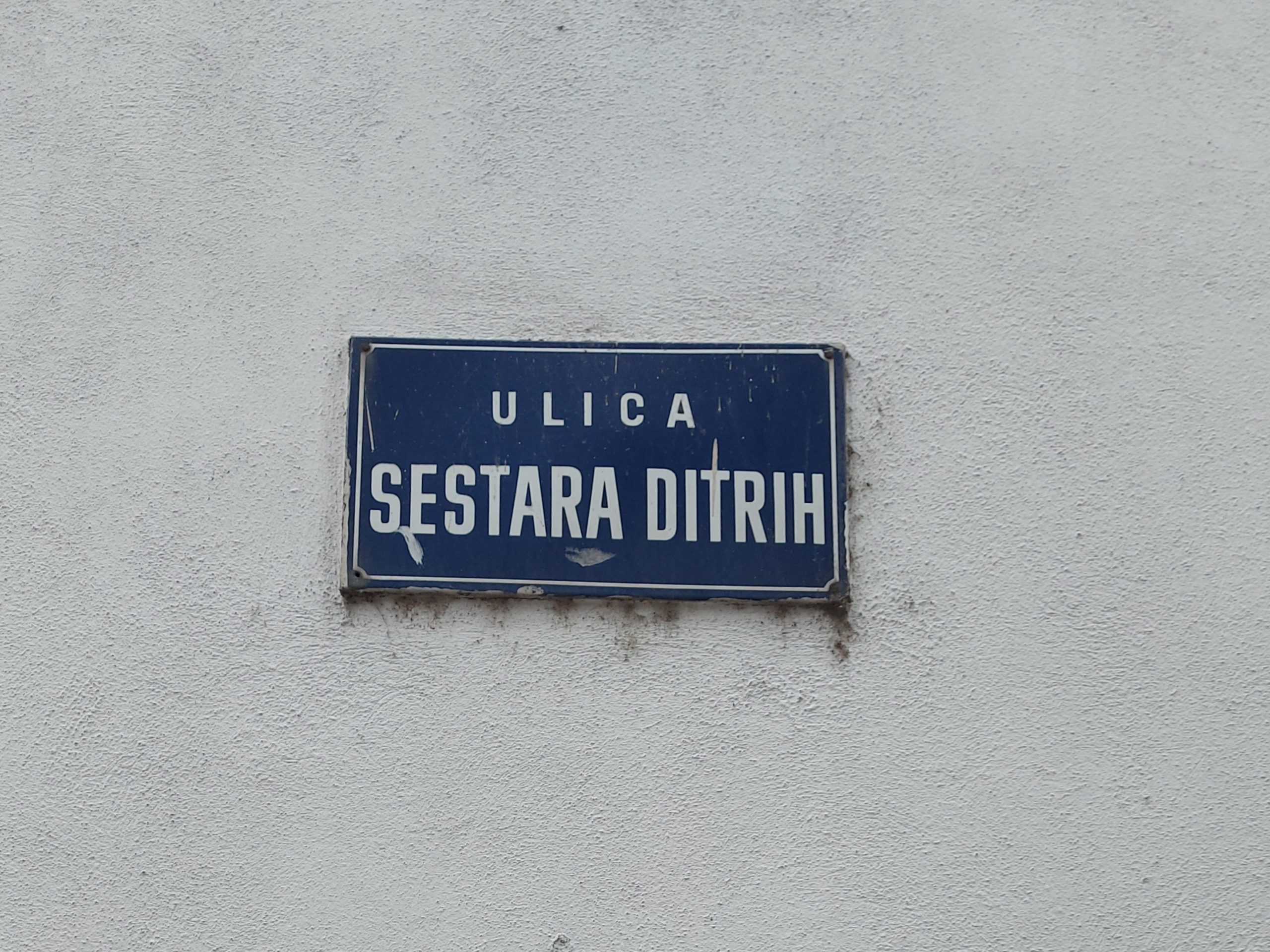
Tihoslava, Borislava, and Miroslava Ditrih, three young sisters who were brutally murdered during the Second World War, are symbols of peace and resistance in Zenica. There is limited information about their activities due to the lack of archival material and the clandestine nature of their work. However, the great importance attributed to their story is reflected by the central street in Zenica named in their honor.
The sisters, affectionately known as Lina, Borka, and Mira, were collaborators of the National Liberation Movement (NLM) in Zenica, supporting the Partisan anti-fascist resistance. By providing intelligence on the movements of occupying armed forces, they contributed to the efficacy and safety of this covert movement’s operations.
Mirza Džananović holds a PhD in historical sciences and works as a professor at the University of Zenica, in addition to serving as the president of the Zjenica Association for the Protection of Human, Intellectual, and Cultural Values. He explains that the Ditrih sisters and other NLM collaborators were required to work with the utmost caution and secrecy so as not to endanger their own lives or those of other members of the movement.
Despite their efforts to uphold this operational principle, the Ditrih sisters were discovered and arrested during a raid carried out by the occupying intelligence services in mid-December 1944. They were then taken to Zenica Prison and ruthlessly tortured before being transferred to the Jasenovac concentration camp, where they were eventually executed in April 1945, just a few days before the territory’s liberation.

“The fate of the Ditrih sisters is perhaps the best illustration of the brutality and lawlessness of the occupying regime. The sisters’ tormentors and murderers didn’t even care that their victims were young girls,” says Džananović.
According to official records from the Jasenovac camp, Lina, the oldest sister, was born in 1925 in Nemila near Zenica, Borka in 1927, and Mira in 1928 in Pale (Eastern Sarajevo).
Persecution, Killing, and Torture
Like many cities in Bosnia and Herzegovina (BiH), Zenica fell under the brutal occupation of Nazi and Ustasha forces during the Second World War. Upon seizing the city in mid-April 1941, these forces introduced a series of measures aimed at persecuting residents who did not fit into the regime’s plans, primarily Jews and Serbs. As time passed, an increasing number of inhabitants residents were killed, tortured, and persecuted.
Speaking about the horrors endured by Zenica residents, Džananović estimates that around 1,000 people perished, including nearly the entire Jewish population of the city. He noted that the occupation of Zenica was especially severe due to the strategic importance of the city’s industrial capacities.
“There were several intelligence services operating in the city, which continuously worked to eliminate all opponents of the regime, suspicious persons, and especially associates of the National Liberation Movement. The resistance movement in Zenica was completely destroyed several times in seizures and raids by the occupiers, with many members either killed on the spot or imprisoned in Zenica Penitentiary or one of the concentration camps like Jasenovac, from which most never returned,” Džananović said.
The story of the Ditrih sisters testifies to how little this chapter of Zenica’s past has been explored as well as to the uncertain and sometimes unreliable nature of the information that is currently available. In most accounts, they are referred to by the nicknames Mira, Borka and Lina, while on the monument erected to them and in the Jasenovac registry, they are listed as Miroslava, Borislava and Tihoslava. In other sources, the name Angelina even appears instead of Tihoslava.
Džananović stresses that although the Ditrih sisters’ fate was tragic and shocking, it is important to share their story and remember the courage of these young women who, in harsh and harrowing times, risked their lives to help fight against the fascist regime.
“The price they and their families paid for this courage was terrible. Almost the entire family was wiped out. For all of these reasons, I hold the opinion that the Ditrih sisters’ story must not be forgotten,” Džananović added.
A School, a Monument, and a Small Street
During the socialist era, an elementary school in Zenica was named after the Ditrih sisters and a monument bearing their image stood in the school yard. However, the school was renamed during the last war and the monument was moved to another location. Džananović believes this was a disgraceful and discourteous act. He says that the street named after the sisters is downtown Zenica near the administrative headquarters is potentially misleading, as he doesn’t believe the sisters have been shown sufficient respect and reverence.
“The street is both short and hidden, so many people from Zenica who live in that part of the city don’t even know it has a name, much less that it’s named after these sisters,” Dženanović points out.
The professor notes that according to some reports, there was a fourth Ditrih sister, Marija, who is believed to have survived and contributed to live in Zenica, where she contributed to the city’s post-war recovery. According to Džananović, Zenica’s reconstruction has been complicated, but in brief it can be said to have been an intensive process driven by strong industrial development.
“During the socialist period, Zenica was transformed into a modern city with many educational, cultural, athletic, and other facilities. In fact, that’s when our city took on the shape and appearance it has today. The term we most commonly use to describe the Zenica of that era is “bustling,” and indeed, that description is very fitting. At the time, Zenica was a large construction site and people moved there from all over the country,” explained Džananović.
Asked whether anyone stands out as having followed in the Ditrih sisters’ footsteps during the last war, the professor acknowledges that many people made substantial contributions to the defense and development of the city during wartime. However, he says that drawing a direct comparison with the Ditrih sisters is impossible given the fact that as much adversity as Zenica faced during the 1992-1995 war, the city was not under occupation and freedom was being defended there. This is the reason, according to Džananović, that tens of thousands of refugees from numerous cities across Bosnia and Herzegovina as well as Croatia came to Zenica. He points out that in 1991, the first refugees from Vukovar and other fallen Croatian cities arrived in Zenica, a fact that is often forgotten.
“Later on, unfortunately, the number of refugees from Bosnia and Herzegovina rose continually, with some estimates from 1995 suggesting that the city’s population exceeded 200,000, of which there were over 50,000 refugees and displaced persons,” notes Džananović.







